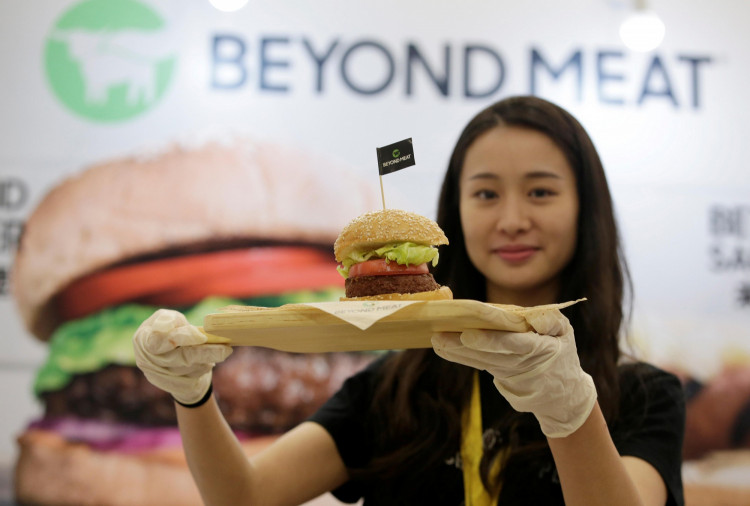Restaurant Chain Grilled Over Work Demands
After being exposed for raising menu prices in April during the COVID-19 pandemic, Chinese restaurant chain Xibei Youmian Cun, or Xibei, once again sparked heated discussion among customers. This time, it has come under harsh criticism for its "715" work schedule – encouraging employees to work seven days a week and 15 hours per day.
Jia Guolong, the chairman of this northwestern China cuisine brand, had recently bragged in a post on the social media site Weibo that his staff iwas working hard under a "715" work schedule, striving to be the most competitive chain restaurant in China. In his impassioned statement, he expressed pride in the company's working hour system, saying it was even more powerful than the renowned "996" working system – working 9am to 9pm six days a week.
The "996" working hour system was first declared by the classified advertisement website 58.com in 2016. Though it attracted criticism from employees and social commentators, a number of Chinese internet companies have adopted this system as their official work schedule. At least 40 companies, including Huawei and Alibaba Group, reportedly implemented the 996 schedule or an even more intensive alternative.
Jia's post immediately led to Weibo users' online protest, criticizing the "715" working schedule as a flagrant violation of Chinese law. In response, Jia claimed that it is an encouraged, not compulsory, practice.
Xibei offers an average monthly wage of 5,000 to 7,500 yuan to staff, which is lower than the 7,839 yuan average monthly salary most freshly graduated students receive, according to a report released by 58.com.
Beyond Meat Aims For Chinese Burger Crowd
Beyond Meat, the Los Angeles-based producer of plant-based meat substitutes, will set up its first China production factory in eastern Zhejiang province. This innovative company has gained attention as perhaps being the food industry's equivalent of Tesla.
In partnership and agreement with the Jiaxing Economic and Technological Development Zone (JXEDZ), Beyond Meat will set up two plants in the area, one of which will be the world's largest and most technologically advanced plant-based meat factory, according to the company's statement.
JXEDZ is a commercially important development zone with close access to Shanghai and Zhejiang province.
This move means Beyond Meat will the first foreign plant protein producer to build a large production base in China. The new factories will manufacture plant-based meat products including beef, pork and chicken under the Beyond Meat brand in China. They are expected to start operations next year.
As of this July, Beyond Meat's vegetarian meat products have been on sale through Alibaba's Heima supermarkets in 48 regions across China.
Online Marketplace 58.com Delisting From NYSE
Amid declining revenue growth, China's largest online market place for classifieds, 58.com, plans to delist from New York Stock Exchange, The Paper reported.
At a meeting on Monday, 75 percent of the stockholders voted for the privatization agreement, according to the company's statement.
In June, 58.com announced a merger agreement with Quantum Bloom Group. The proposed transaction to take the term privatel is estimated to have an equity value of $8.7 million, at a cash price of $28 per share. Under the agreement, 58.com will be acquired by a consortium of investors that includes Warburg Pincus Asia LLC, General Atlantic Singapore Fund Pte, Ocean Link Partners and 58.com Chairman and CEO Yao Jinbo. The transaction is expected to be completed in the second half of this year, Pandaily reported.
The company was established in 2005 and developed its business mostly based upon marketing services. It went public in 2013, raising $187 million while pricing its shares at $17 per share.
Tencent Holdings, as of the first quarter, was its largest shareholder with a 22.4 percent stake.
Cold-Chain Food Supply Adds COVID Defense Measures
As of Monday, China had suspended imports from 56 foreign cold-chain food companies in 19 countries. Of these companies, 41 voluntarily halted the shipments, Beijing News reported.
The General Administration of Customs of China said at the conference of China International Meat Industry Week, which runs through Sept. 12, that the expansion of the coronavirus overseas adds risks to the cold-chain food supply at home, prompting it to take measures to ensure its safety.
As of Monday, the administration has participated in 121 online conference meetings with 99 countries and regions to discuss measures to take in the prevention and control of the disease. It has inspected over 500,000 cold-chain samples including frozen foods, packaging and containers, for COVID-19.
Of these samples, Dalian Customs found on July 3 that the inner side of a container and the outside of three packages from two Ecuadorean exporters were positive. Meanwhile, Xiamen Customs found that the outside of three packages of frozen food from another Ecuadorian exporter had tested positive.
As of August, China has imported up to 6.58 million tons of meat, from 6.1782 million tons in 2019, from 2020 companies in 38 countries, covering category of pork, beef, lamb, bird species, deer, horse and donkey.





